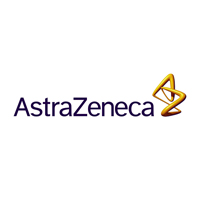Following the recommendation from an independent Data Monitoring Committee, AstraZeneca (LON:AZN) has decided to close the Phase III STRENGTH trial for Epanova (omega-3 carboxylic acids) due to its low likelihood of demonstrating a benefit to patients with mixed dyslipidaemia (MDL) who are at increased risk of cardiovascular (CV) disease.
STRENGTH is a large-scale, global CV outcomes trial designed to evaluate the safety and efficacy of Epanova compared to placebo, both in combination with standard-of-care statin medicines.
Mene Pangalos, Executive Vice President, BioPharmaceuticals R&D, said: “It was important to assess the potential benefit of Epanova in mixed dyslipidaemia. We are disappointed by these results, but we remain committed to addressing the needs of patients in the cardiovascular space where we have an extensive pipeline.”
Steven E. Nissen MD, Study Chair for the STRENGTH trial and Chief Academic Officer for the Heart and Vascular Institute, Cleveland Clinic, US, said: “The academic leadership of the STRENGTH trial is obviously disappointed in this result, but we are very proud to have had the opportunity to answer this important scientific question. We are also grateful for the opportunity to conduct the STRENGTH trial as an exemplary collaboration between academic physicians and industry.”
This trial will now be closed in an orderly fashion, and full data will be presented at a forthcoming medical meeting.
Financial considerations
A review is being undertaken of the ongoing value of the $533m Epanova intangible asset. Any impairment will be treated as a non-Core item in the fourth quarter of 2019. A write down of up to $100m relating to inventories is also anticipated to impact the Core earnings in the fourth quarter of 2019.
STRENGTH
STRENGTH is a large-scale CV outcomes trial evaluating the effect of Epanova 4g daily compared to placebo (corn oil) on reducing the risk of major adverse cardiovascular events (MACE) in patients on optimal statin therapy with mixed dyslipidaemia and at high risk for CV disease. A total of 13,086 patients were enrolled at 675 sites in 22 countries.
Mixed dyslipidaemia
MDL includes patients with raised triglyceride levels (moderate hypertriglyceridemia) between 175-499mg/dL mg/dL, and low HDL cholesterol. Elevated triglycerides affect a growing number of patients and is often worsened by other factors such as diabetes or obesity. Lifestyle changes and potentially treating the underlying cause is likely to at least partly improve the condition and reduce cardiovascular risk.
Epanova
Epanova is a fish oil-derived mixture of free fatty acids primarily composed of EPA and DHA. It is approved in the US and indicated as an adjunct to diet to reduce triglyceride levels in adult patients with severe (≥500 mg/dL) hypertriglyceridaemia, and this indication is not impacted by the data from the STRENGTH trial.
AstraZeneca in CVRM
Cardiovascular, Renal and Metabolism (CVRM) together forms one of AstraZeneca’s three therapy areas and is a key growth driver for the Company. By following the science to understand more clearly the underlying links between the heart, kidneys and pancreas, AstraZeneca is investing in a portfolio of medicines to protect organs and improve outcomes by slowing disease progression, reducing risks and tackling comorbidities. The Company’s ambition is to modify or halt the natural course of CVRM diseases and potentially regenerate organs and restore function, by continuing to deliver transformative science that improves treatment practices and cardiovascular health for millions of patients worldwide.








































